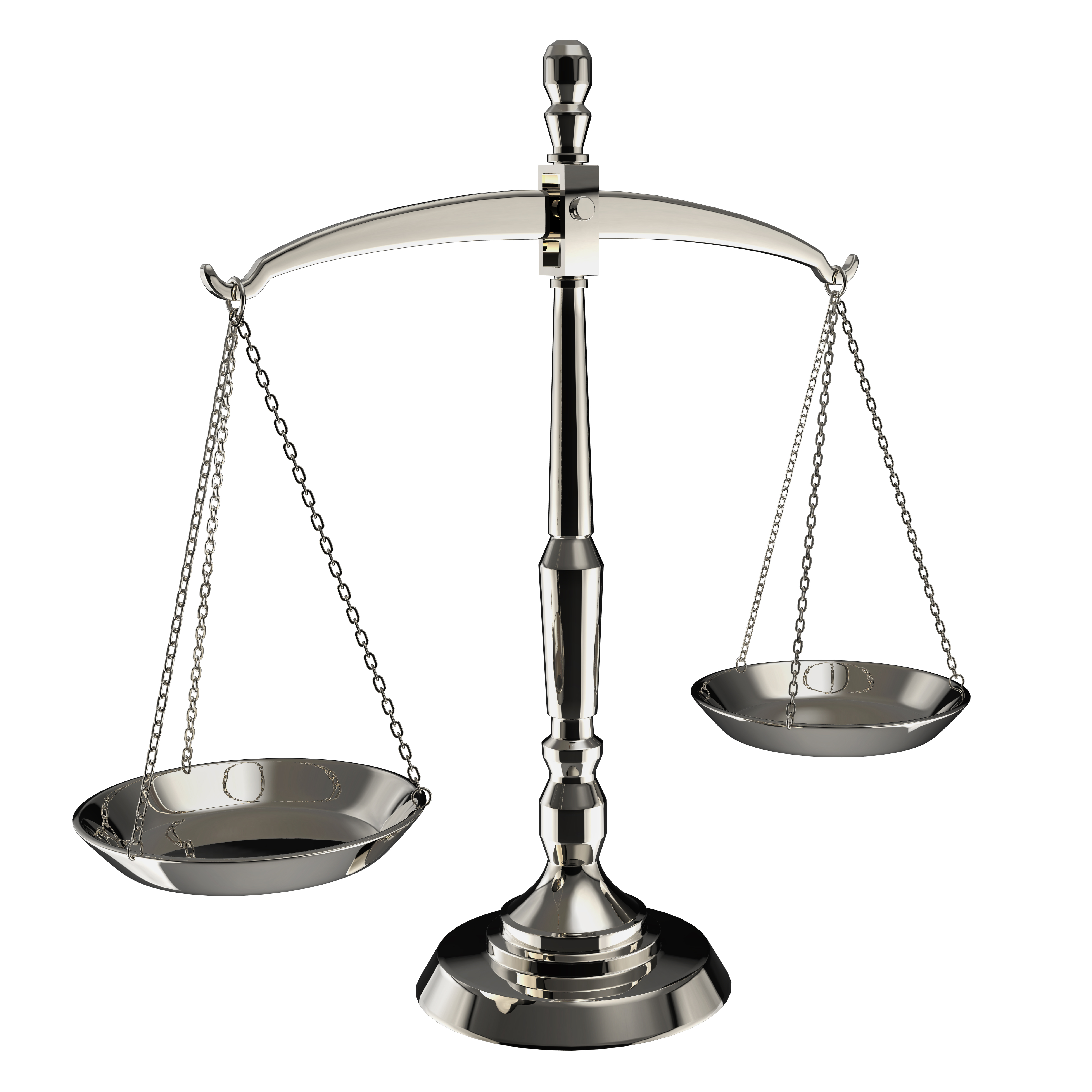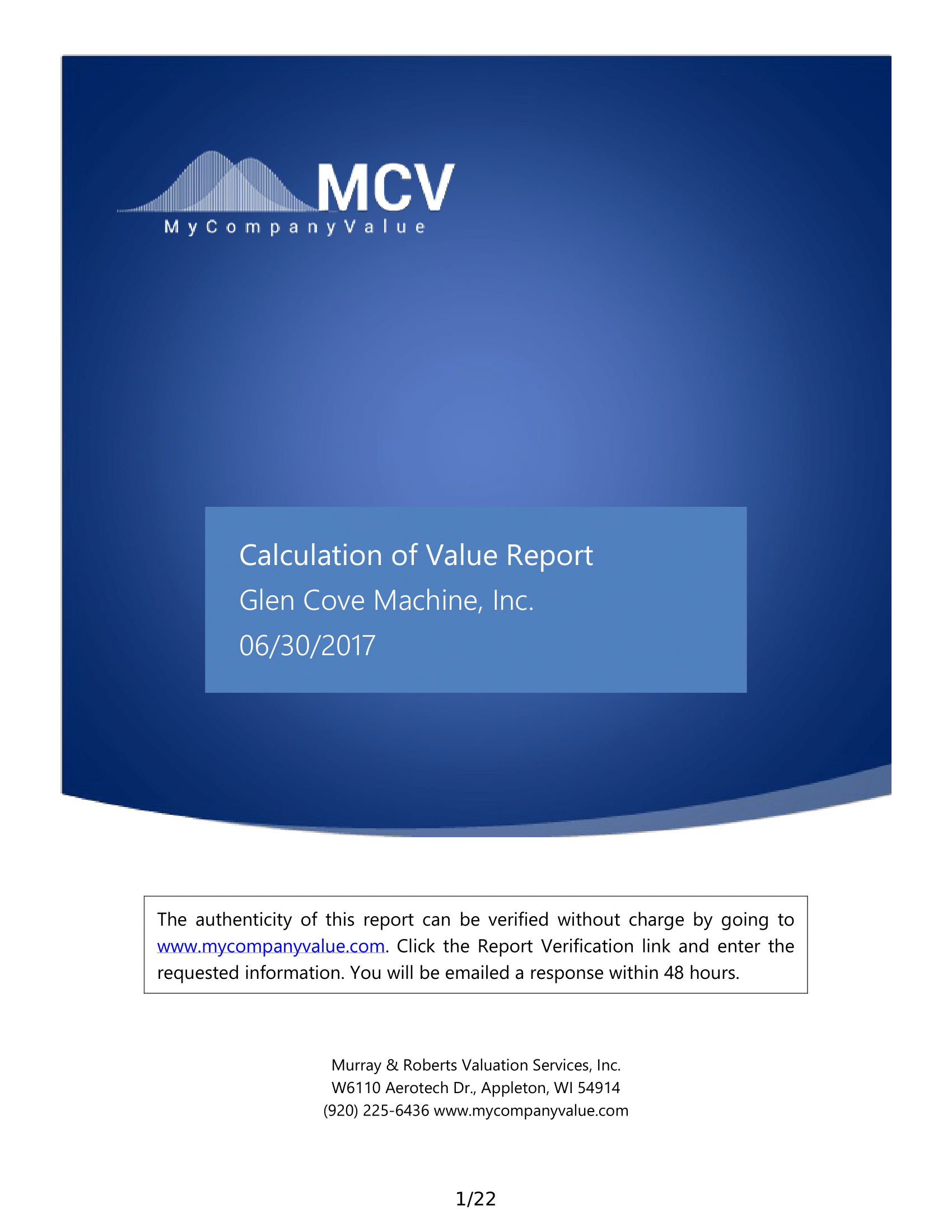Why Do You Need A Business Valuation?
Buying or Selling a Business
Our Calculation of Value Report can give you the information you need when you need it.
Anyone who has bought or sold a business before will tell you that there are usually many 'prospective transactions' before you find the right one. A buyer typically looks at many businesses before they find what they're looking for, and a seller will have many people interested in their business before they sell. Paying for a full business valuation, which typically costs between $5,000 and $10,000, every time you find an interesting business or have an interested buyer approach you can become very expensive.
Spending $5,000 for a business valuation is also impractical for businesses worth less than $250,000. Our calculation of value report will provide you with a reliable valuation (provided we are given reliable data) when you need it, and at a price that won't break you if your transaction falls through.
The majority of banks will accept our calculation of value report for SBA loans up to $250,000, and many accept our reports for larger SBA loans. Some banks still require full valuation reports for SBA loans of $250,000 or more.
Estate Valuation
The valuation of a business interest included in an estate has many important tax implications, and is required by the IRS.
Not only does the valuation impact the value of the potentially taxable estate, but it also establishes a new ‘stepped-up’ basis for determining gain or loss on the sale of the business interest. Minority interests in business are often subject to valuation discounts for lack of control, or lack of marketability. Appropriate application of these discounts could reduce the taxable gross estate, and therefore the estate tax. An estate tax return must have documentation attached substantiating the values of all assets included in the estate.
Accuracy is the most important factor for all valuations submitted to the IRS. If the IRS challenges your valuation, they must demonstrate that your valuation logic or methodology is flawed, and present a valuation of their own.
The more a business interest is worth, the larger effect its valuation has in determining tax, and the more scrutiny such valuation will receive from the IRS. For business interests worth less than $500,000, a calculation of value report (as sold here) is adequate. For business interests worth more than $1,000,000, a full business valuation report is appropriate. For interests valued between $500,000 and $1,000,000, consideration must be given to the specific circumstances to determining if a full valuation report is warranted. Primary among those considerations is: (1) what are the tax implications of the specific valuation, and (2) were valuation discounts applied to arrive at the value.
Gift of a Business Interest
The IRS requires a valuation report be attached to Form 709 Gift Tax Return upon which a gift of a business interest is reported.
Gifts of fractional business interests are typically subject to valuation discounts (reductions in the value per share) due to a lack of control or lack of marketability associated with the interest given. These discounts typically work to the donee taxpayer’s benefit, as he or she typically seeks the lowest value acceptable to minimize the amount of the lifetime gift exemption used up by the gift of shares.
Accuracy is the most important factor for all valuations submitted to the IRS. If the IRS challenges your valuation, they must demonstrate that your valuation logic or methodology is flawed, and present a valuation of their own.
The more a business interest is worth, the larger effect its valuation has in determining tax, and the more scrutiny such valuation will receive from the IRS. For business interests worth less than $500,000, a calculation of value report (as sold here) is adequate. For business interests worth more than $1,000,000, a full business valuation report is appropriate. For interests valued between $500,000 and $1,000,000, consideration must be given to the specific circumstances to determining if a full valuation report is warranted. Primary among those considerations is: (1) what are the tax implications of the specific valuation, and (2) were valuation discounts applied to arrive at the value.
Divorce
When a joint marital estate includes a private business interest, getting a calculation of value report early in the process can potentially save thousands in fees and weeks or months off the divorce process.
Full valuation reports are expensive, and take weeks or more to complete. Due to the time requirements of judicial process, if one party in a divorce proceeding orders a full business valuation report, the other party will usually do the same soon after. This can immediately cause the cost of the divorce to increase by $10,000 - $20,000 between both parties. If a low cost calculation of value report is ordered early in the process, one or both parties may realize that the business value does not warrant a full valuation, and the two sides may settle on a value without expert witnesses and unnecessary litigation.
In some cases the calculation of value report may indicate that the business value is significant enough that a full valuation report is warranted.
Subchapter S Elections
When a corporation elects subchapter S status, a business valuation is required to establish the value of its assets.
Establishing the value of these assets as of the date of conversion to an S corp. determines the amount of ‘built in gains tax’ the corp. may have to pay if the assets are sold before the built in gains period has elapsed (currently five years).
The built in gains (BIG) tax is the amount of tax the corporation would have paid on the asset sale had it remained a C corp. If a corporation fails to value its assets as of the election date, and later sells some or all of its assets during the BIG period, it runs the risk of the IRS claiming that all of the gain on the asset should be subject to the BIG tax. Valuing the company and its assets as of the conversion date puts a cap on the potential BIG tax payable.
Accuracy is the most important factor for all valuations submitted to the IRS. If the IRS challenges your valuation, they must demonstrate that your valuation logic or methodology is flawed, and present a valuation of their own.
The more a business interest is worth, the larger effect its valuation has in determining tax, and the more scrutiny such valuation will receive from the IRS. For business interests worth less than $500,000, a calculation of value report (as sold here) is adequate. For business interests worth more than $1,000,000, a full business valuation report is appropriate. For interests valued between $500,000 and $1,000,000, consideration must be given to the specific circumstances to determining if a full valuation report is warranted. Primary among those considerations is: (1) what are the tax implications of the specific valuation, and (2) were valuation discounts applied to arrive at the value.
409a Valuation and Roll Over Business Start-Up
If your company offers stock options to employees, IRC section 409a requires a business valuation. Our valuation report will satisfy this requirement. Some business owners are choosing to reverse their Roll Over Business Start-up by purchasing their stock from their IRA. A business valuation is required, but it doesn't have to cost you thousands.
Roll Over for Business Startup, or ‘ROBS’ is a commonly promoted method of financing a start-up business. The most attractive feature of the strategy is the ability to invest tax deferred retirement plan assets into the startup business operated by the IRA account owner. Promoters also tout the benefit of deferring income taxes on the corporation’s dividends (the corporation is still required to pay corporate income taxes on its profits).
Some business owners have realized there are negative attributes to this strategy as well. The startup business must be organized as a ‘C corp.’ which means that losses do not pass through to the owner, and profits will be double taxed at both the C corp. rate and later at the individuals ordinary rate. If the corporation is sold, a potentially tax advantaged capital gain is converted to ordinary income in the IRA. Finally, because the IRA owner is effectively doing business with their IRA, very strict rules must be observed or severe penalties may apply.
For these reasons some owners have chosen to reverse their ROBS transactions by purchasing their C corp. stock from their IRAs. A valuation is required to establish a fair market value of the stock. This same valuation is commonly used for a simultaneous subchapter S election.
Accuracy is the most important factor for all valuations submitted to the IRS. If the IRS challenges your valuation, they must demonstrate that your valuation logic or methodology is flawed, and present a valuation of their own.

BRIAN MURRAY CPA/ABV CVA
Company founder Brian Murray CPA/ABV, CVA (Accredited in Business Valuation, Certified Valuation Analyst) has been in public accounting since 1997. Prior to that he was in finance at Kimberly-Clark Corp., audit at M&I Bank Corp., and accounting manager at Browning-Ferris Ind. Brian's areas of specialty are estate and trust tax and business valuation.Brian's community involvement includes: serving as Treasurer of the Salvation Army Fox Cities, serving on the Board of Directors of the Fox Valley Humane Society, serving on the Board of Directors of Big Brothers/Big Sisters, serving on the Board of Directors of the Wildwood Film Festival, and serving on the Board of Directors of Mothers and Unborn Baby Care. Brian also volunteered as a Big Brother for four years, and for United Way's fundraising campaign for multiple years. Brian and his family live in Neenah, WI.
Brian has been consulting clients regarding business value and merger & acquisition transactions since 2000. The majority of the valuation reports written were to aid a buyer or seller in a transaction or negotiation. Brian has often served as lead negotiator for prospective buyers or sellers.
Brian has served as an expert witness in corporate litigation cases as well as divorce, and has performed valuations for estate and gift tax returns, and estate planning.
